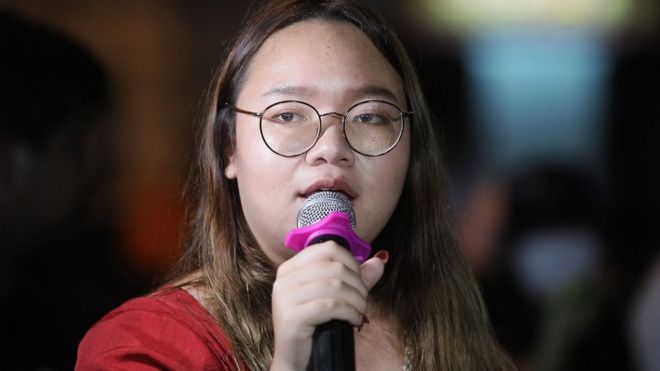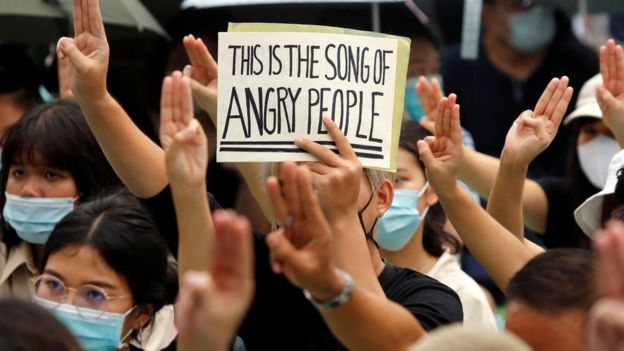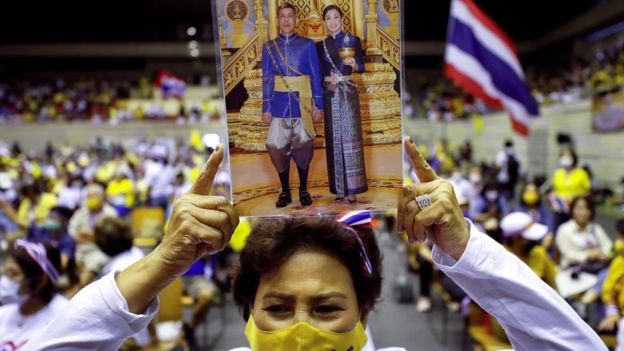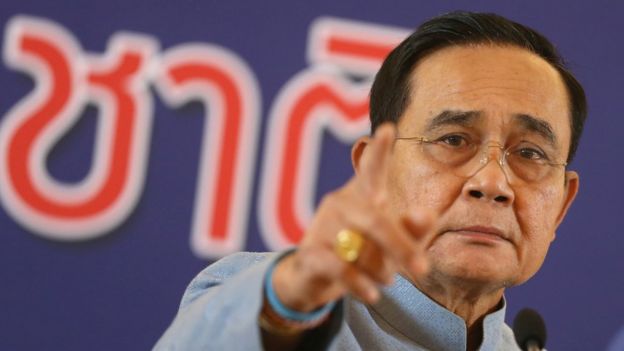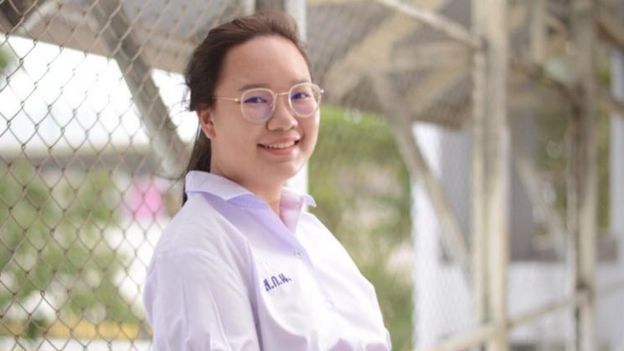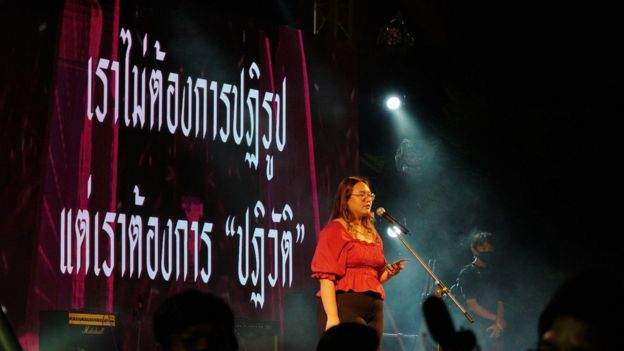AUNTIE YAO’S SOM TUM DELIGHTS EVERYONE, FROM WIN MOTOSAI TO HISO
By
Asaree Thaitrakulpanich, Staff Reporter
-
September 15, 2020 3:00 pm
Napuschada “Auntie Yao” Chanchua.
BANGKOK — “Want any grilled chicken and som tum today?” Auntie Yao calls out to familiar faces walking down the street as motorcycle taxi drivers fuel up on grilled drumsticks and plates of pungent fermented papaya salad at her stall.
Napuschada “Auntie Yao” Chanchua is the cheerful, garrulous proprietor of “Yao Som Tum” street food cart, a staple on Nang Linchi Road for decades.
“Motorcycle taxi drivers, office workers, maids, construction workers, and even millionaires are my customers,” Auntie Yao said. “They call me with their orders, and a Benz picks it up.”
Auntie Yao says she’s been selling chicken and somtum on Nang Linchi for 20 years, but only acquired her spot in front of the Krungthai Branch seven years ago after negotiating with a
tessakit officer, or a municipal security officer.
Auntie Yao’s simple cart has remained unadorned for most of her years selling chicken and somtum on the street. But a few weeks ago a group of university students made a sign, a bilingual menu, and a logo for her as part of their homework on marketing.
Her quiet foil of a husband, the much more soft-spoken and shy Ananya Chanchua, 55, is in charge of manning the grill. On days when their daughter Visal Chanchua, 21, doesn’t have class, she helps her parents out at their stall.
Customers wait in front or behind the cart, chatting with Auntie Yao while Ananya warms up any orders of chicken or fish so they can be handed, nice and warm, to the waiting customer.
The basic
som tum Thai sells for just 35 baht, and the more pungent
tum poo pla ra, which includes salted crab and fermented fish, cost 30 baht.
Ananya Chanchua grills chicken and fish.
Although stories of stomach problems from eating at street carts abound, Auntie Yao’s food preparation is quite hygienic, and she swears that her
pla ra, or fermented fish, has been properly boiled beforehand.
We suggest the most adventurous try
tum sua, or papaya salad with fermented vermicelli and salted crab for 40 baht, a huge portion of punchy and sour noodles.
Tum taeng, or cucumber som tam (30 baht), is also a refreshing option not found at all som tum stalls.
For the som tum dishes, pick from four levels of spicy: mild, medium, spicy, and fiery, or else Auntie Yao will just pick for you depending on where you look like you’re from (Bangkokians will get medium by default).
A large piece of grilled chicken is 40 baht, a drumstick 20 baht, while a grilled
naem, or fermented Isaan pork sausage, is 15 baht. Don’t forget a couple servings of plain or sticky rice, 5 baht each.
Tum sua (40 baht), grilled chicken (40 baht), and sticky rice (5 baht).
The grilled catfish is only 25 baht each, and the fish is stuffed with Auntie Yao’s secret mixture of herbs and spices.
Mhoo puang, or strings of grilled pork threaded with a string of wire, are 10 baht each and are a quick on-the-go protein snack.
Grab as much free vegetables and as you want from the bucket of water next to the stand. Millionaires and maids pay the same price, so will farangs. Bring your own tupperware to if you don’t want to have all your food packed in separate plastic bags.
Yao Som Tum is open every day from 6am to 2 to 3pm, depending on availability. The stall is located on Nang Linchi Road at the entrance to Soi 3, in front of the Krungthai Bank.
Napuschada, Visal, and Ananya Chanchua.
Tum sua (40 baht).












